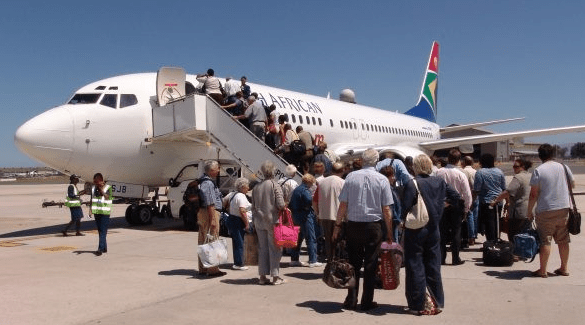How to avoid poor air travel user experience during Easter across Africa and beyond
Aviation in Africa is experiencing a resurgence, aligning with global trends. The International Air Transport Association (IATA) has reported that by the end of 2023, passenger traffic in Africa had reached approximately 101 percent of the levels seen in 2019. This positive trajectory is expected to continue in 2024, with passenger traffic projected to reach 105 percent of 2019 levels. Notably, Northern and Eastern Africa are anticipated to lead the continent in terms of traffic recovery this year, with expected levels surpassing 103 and 102 percent of 2019 levels, respectively.
As the Easter holidays approach, numerous African countries have become highly sought-after destinations for European travelers. However, the surge in air travel raises concerns regarding the challenges commonly associated with busy travel periods. The aviation industry is under pressure to maintain peak performance amidst these circumstances.
In some countries, flight delays have now surpassed pre-pandemic levels. For instance, in the United Kingdom, only 64 percent of flights are departing or arriving within 15 minutes of their scheduled time. These delays can be attributed to various factors such as disruptions in air traffic control, system failures, staff shortages, and strikes. The influx of Easter travelers may exacerbate these issues, leading to sudden cancellations and leaving passengers stranded.
The aviation industry heavily relies on digital networks and applications for crucial tasks such as providing departure information, issuing updates, and inspecting luggage. Unforeseen network downtime can have a significant impact on airlines, resulting in substantial costs ranging from $10 to $150 million, depending on the severity and consequences of the incident.
Bryan Hamman, the regional director for Africa at NETSCOUT, emphasizes the significant advancements in the African aviation industry over the past decade. These advancements have been made possible through the utilization of technologies such as generative AI, which have greatly improved customer service. However, with the increasing digitalization of the industry, it is imperative for the local aviation sector to prioritize cybersecurity. This is crucial in order to protect against the growing number of cyberattacks that pose a potential threat to air transport in the region.
Sanjay Radia, the chief solutions architect at NETSCOUT, underscores the importance of maintaining aviation systems to minimize the risk of downtime during peak travel periods. Passengers expect punctuality, especially when traveling during holidays, and any interruptions can be detrimental to airlines. System failures can lead to downtime, which disrupts vital processes and may bring operations to a halt. These delays can cause confusion and stress for passengers.
To mitigate this risk, airlines and airport operators need robust strategies. Poor visibility in digital environments can result in minor network or application issues being overlooked, which can escalate into major problems at critical times. By deploying intelligent and scalable deep packet inspection tools, airlines can proactively identify and address the root cause of even the most complex performance issues. This enables them to expedite resolution processes and minimize the impact on passengers.
During periods of increased travel, the aviation sector has a valuable opportunity to demonstrate the strength of its operations. Therefore, ensuring peak application and network performance is crucial. By actively monitoring for issues, organizations can prioritize the passenger experience, gain a competitive advantage, and maintain business continuity. SOURCE: NETSCOUT




